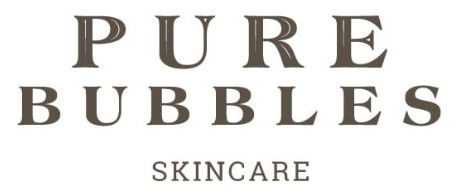Silicones in skincare are everywhere — in moisturisers, sunscreens, serums, primers, and even “acne-safe” products. They give products a smooth, silky feel and make them glide easily on the skin. But if you’ve ever wondered “Are silicones bad for skin?” or “Why isn’t my acne going away despite using expensive products?” — the answer may lie in how much silicone you’re actually layering on your face every single day.
Why Dermatologists Use Silicones
Dermatologists often use silicone-based gels and silicone sheets in scar treatment. In fact, silicone in dermatology is well documented for reducing hypertrophic and keloid scars. Silicones work here because they:
- Create a protective occlusive layer
- Improve hydration balance in scar tissue
- Help collagen remodeling
-> Silicone Gel Sheeting for Scars
But here’s the key difference: dermatologists use silicones for targeted scar care. That’s not the same as using silicone-based moisturisers, silicone sunscreens, and silicone primers on your entire face daily.
Silicones in Skincare Products: The Reality
Most commercial skincare products — moisturisers, sunscreens, serums — are loaded with ingredients like dimethicone, cyclopentasiloxane, trimethicone. These are cost-effective for brands and create instant cosmetic elegance.
But silicone in skincare has downsides when used daily and in layers:
-
Occlusion and irritation: Studies show that long-term occlusion from silicones can irritate and stress skin.
Evaluating Irritant Factors of Silicone and Hydrocolloid (ACS, 2023) -
Blocked actives: Silicones form a film that reduces penetration of other skincare actives like vitamin C, retinol, or niacinamide.
Physicochemical Impact of Silicones (ScienceDirect, 2022) -
Acne and fungal acne: While brands call silicones “non-comedogenic,” in reality they can trap oil, sweat, and debris — leading to breakouts and worsening fungal acne.
Silicones in Skincare: Pros & Cons (Healthline) - Sensitive skin problems: Sensitive skin types often experience redness, irritation, and more inflammation with prolonged silicone use.
Why Silicones Can Make Acne Worse
If you have oily or acne-prone skin and you’re using a silicone sunscreen, silicone moisturiser, and silicone-based serum daily, here’s what happens:
- Barrier stress — constant occlusion prevents natural skin balance.
- Trapped sebum & microbes — the film locks in oil and bacteria.
- Blocked absorption — important ingredients like antioxidants and ceramides can’t work effectively.
- Inflammation cycle — skin stays irritated, breakouts keep returning.
This is why so many people wonder: “Why isn’t my acne going away?” — while still using silicone-heavy products.
The Skincare Industry’s Cycle
Here’s the harsh truth:
- First, companies sell you silicone-based moisturisers and sunscreens.
- Then, when acne worsens, they sell you exfoliating acids like AHA/BHA peels.
- The cycle repeats.
It’s great for business, but not for your skin.
The Silicone-Free Skincare Alternative
If you have acne-prone, sensitive, or fungal acne skin, switching to silicone-free moisturisers and silicone-free sunscreens is often the game-changer.
Plant-based and barrier-repairing ingredients that actually help the skin breathe and heal include:
- Kokum butter, shea butter
- Sea buckthorn oil, moringa oil, hemp seed oil
- Ceramides, fatty acids, natural humectants
These work with your skin instead of suffocating it.
OR use our products simple solution to it
Bottom Line
Silicones in skincare are not “toxic” — but they’re often overused. Dermatologists use silicones smartly, in targeted scar care. In contrast, the beauty industry packs them into every product layer — moisturisers, sunscreens, primers, serums — leading to acne, fungal acne, irritation, and barrier stress in the long run.
If your acne isn’t improving, it may be time to switch to silicone-free skincare. Your skin barrier will thank you.
